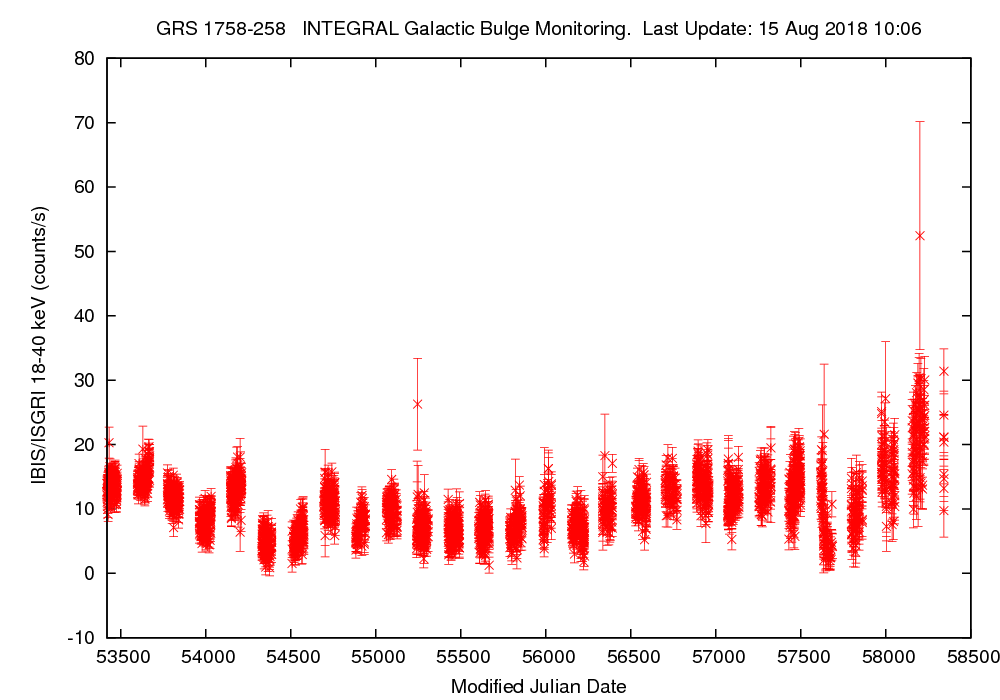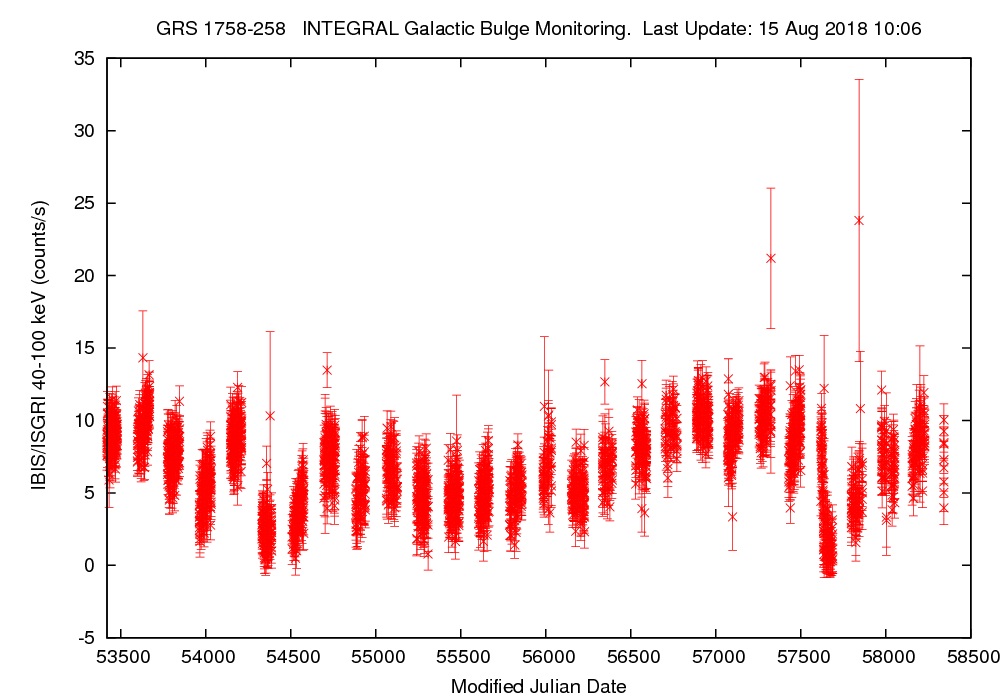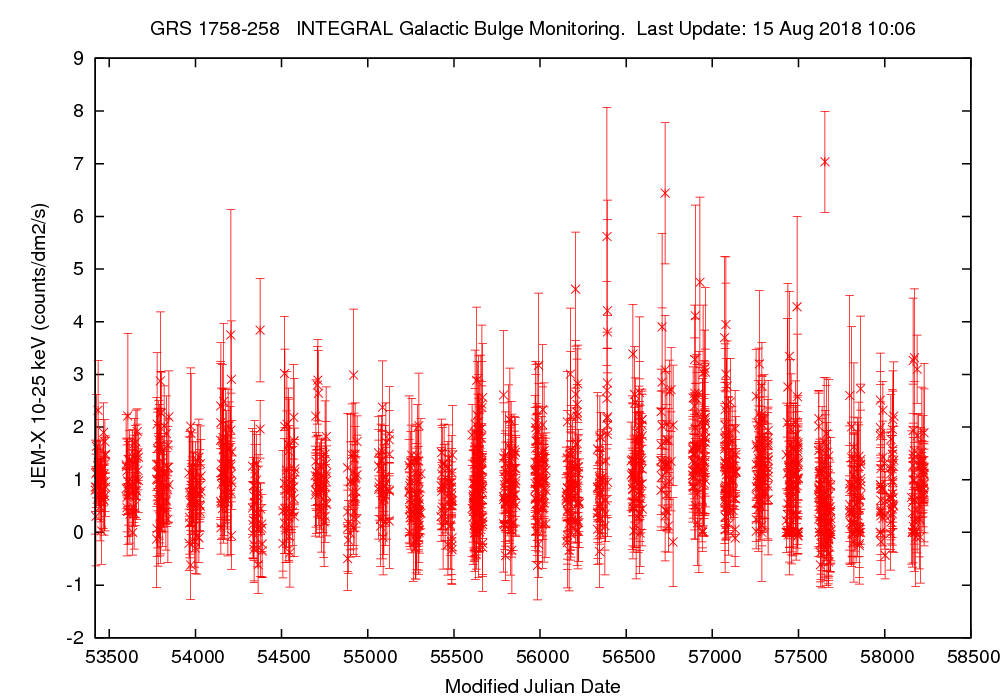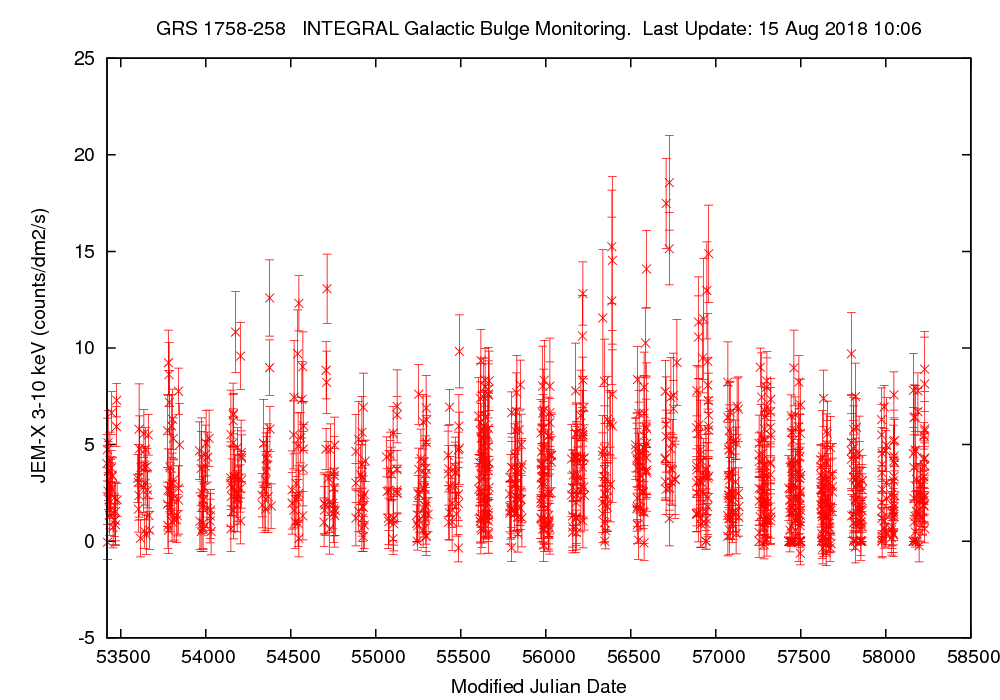IBIS/ISGRI


JEM-X


INTEGRAL Galactic bulge Monitoring: GRS 1758-258
Light Curves
IBIS/ISGRI


JEM-X


The above count-rates can be compared with calibration data taken of the Crab.
Points are marked at the centre of the science window with horizontal error bars showing its total length (about 1800 seconds). Sources within the field of view but not detected or with negative detection significance are plotted as flux = 0 with no vertical error bar.
Data for PlotsColumn format: MJD(days), +/-, Flux (counts/s), +/-, off-axis angle, jem-x unit (JEM-X only), ScW ID
In the ScW ID column, a suffix of ".000" indicates that plots were compiled from NRT data; ".001" indicates CONS data. If two JEM-X's were operating, data from both JEM-X1 and JEM-X2 are given (see also the Analysis page).
GRS_1758-258_isgri_lc_18-40.all
GRS_1758-258_isgri_lc_40-100.all
GRS_1758-258_jmx_lc_10-25.all
GRS_1758-258_jmx_lc_3-10.all
Source Visibility
The above graph shows angular distance of the source from the centre of the field of view. The IBIS/ISGRI FoV is a 29x29 degree square (central 9 degree square is fully coded); JEM-X FoV is truncated to a 10 degree diameter circle in this analysis (central 4.8 degree diameter circle is fully coded). Points below the horizontal line are visible in JEM-X. The level of systematic noise rises towards the edges of both instruments' FoVs (see Crab calibration data).
Go back to the INTEGRAL Galactic bulge monitoring home page